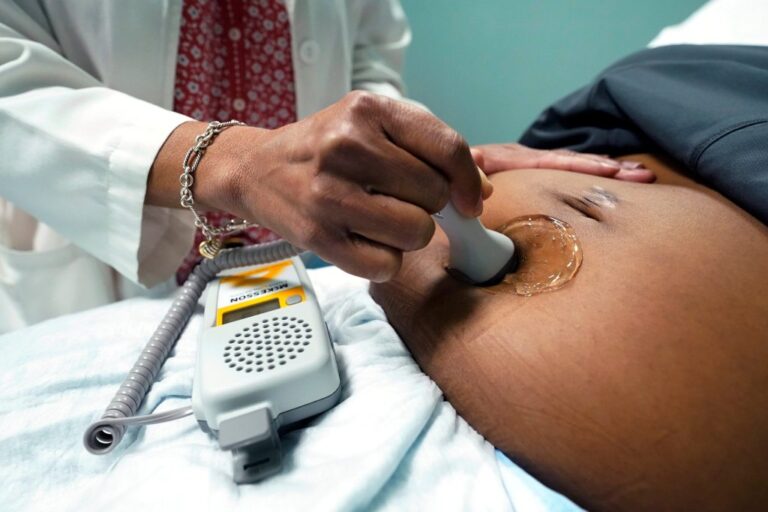The Black maternal and child health crisis is real. Black women are three times more likely to die from pregnancy-related complications than white women nationwide, regardless of income level or education. The crisis also affects black babies, who die at three times the rate of white babies during their first hospitalization.
Since its inception, the Biden-Harris Administration has been committed to closing these troubling health disparities by investing in effective programs that are tailored to local communities. In 2022, the government announced an unprecedented blueprint to tackle the maternal health crisis. This blueprint is necessary and our efforts to improve health outcomes are intentional.
The U.S. Department of Health and Human Services is working to reduce these disparities and increase coverage for Black Americans by expanding coverage, implementing new policies, and providing funding to ensure safer pregnancy and postpartum services for new parents and their babies. We are taking unprecedented steps to strengthen maternal health.
The President's FY2023 Budget provides HHS with even more resources to improve the health of our nation's mothers. He invested $470 million across HHS agencies to reduce maternal mortality and morbidity. HHS's Health Resources and Services Administration is working to support the White House's blueprint and government-wide strategies to combat maternal mortality and improve maternal and child health, especially in underserved communities. He won nearly $90 million in prize money.
We partner with Historically Black Colleges and Universities (HBCUs) to advance the development of healthcare professionals, especially birth-related talent such as doulas, midwives, and lactation support specialists. Women who receive doula care have a 22% lower risk of preterm birth. Such evidence has led to historic HHS funding to make community-based doulas more accessible.
In the Hampton Roads region, in collaboration with Sentara Health, Virginia Hospital and Healthcare Association, Greater Peninsula CARES Foundation, Celebrate Healthcare and other partners, the event will be held Tuesday from 8:30 a.m. to 4 p.m. We are working on several initiatives including maternal and child health in the region. Wednesday from 8:30 a.m. to 12 p.m. at Gethsemane Baptist Church, 5405 Roanoke Avenue, Newport News. This special conference will focus on developing a culturally competent workforce, postpartum security, maternity worker reimbursement, pre-pregnancy chronic disease management, and faith and community leaders to develop successful strategies for partnering with health professionals. Focus on themes such as cooperation with; Best practices that lead to reducing health disparities will be shared and recommendations will be provided in the area of maternal and child health.
We partner with local faith-based and community organizations to connect more Black moms-to-be with high-quality resources including mental health support, medical insurance, doula access, vaccinations, and more. We are expanding its scope by connecting it to other services.
Another way HHS is making a difference is through the ongoing national MOMS tour of faith-based centers and neighborhood partnerships. This is a community baby shower aimed at new and expectant minority mothers from communities with high fertility and morbidity rates. His MOMS Tour event will be held in Chesapeake later this year.
HHS is committed to increasing access to rural maternal care, strengthening local health workers as well as the communities they serve, and promoting timely treatment and quality care through the Hear Her campaign. I've been working on it. We also launched HRSA's Maternal Mental Health Hotline. 833-TLC-MAMA.
Thanks to funding from the U.S. Centers for Disease Control and Prevention, we established the Perinatal Quality Collaborative to implement equity-focused quality improvement across the state on outcomes of care for women and infants.
HHS is also working to strengthen public health infrastructure through CDC support for state maternal mortality review committees. These committees aim to better understand the causes of maternal deaths and develop recommendations to prevent future deaths.
The deterioration of Black women's health is unacceptable. We can do better. This is our joint responsibility. We must all demonstrate our leadership and strength in this fight to address and eliminate inequality.
Melissa A. Heard is the acting director of the U.S. Department of Health and Human Services for the Third District, which serves Virginia, Delaware, Maryland, Pennsylvania, West Virginia, and the District of Columbia.


